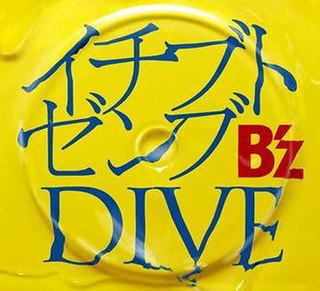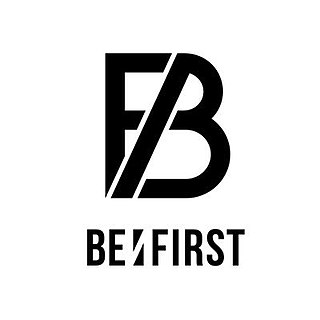
The discography of Japanese-American R&B and pop singer Hikaru Utada consists of eleven studio albums, four compilation albums, eleven video albums and numerous singles and promotional singles. Utada began as a musician in the early 1990s as a member of U3, a family unit made up of her, her mother Junko Utada, also known as 1970s enka singer Keiko Fuji, and her father, musical producer Teruzane Utada. U3 released their debut album Star in 1993, with the hope to debut in America. In 1996, the group was rebranded as Cubic U, an R&B project focusing on Hikaru Utada, resulting in the English language album Precious in 1998 with record label Toshiba EMI.

Expo Expo is the second studio album by Japanese hip-hop group M-Flo. The thematic concept of the record is set at a virtual world expo, with Coldfeet of Lori Fine and narrator Mako Hattori participating in the interlude. Six singles were spawned off of the album, including "How You Like Me Now?" and "Come Again", which were both certified by the RIAJ in different categories. Remixes of songs from this album were released as Expo Bouei Robot Gran Sonik.

Astromantic is the third studio album by the Japanese hip-hop group M-Flo. It was released on May 26, 2004, through Rhythm Zone. Remixes of songs from this album were released as Astromantic Charm School. The album spawned three singles featuring different singers: "Reeewind!" with Crystal Kay, "Miss You" with Melody, and "The Love Bug" with BoA.

"Ichibu to Zenbu/Dive" is the forty-sixth single by B'z, released on August 5, 2009, as a double A-side. This is one of the many number-one singles by B'z at Oricon Singles Chart. It was a long hit, staying in the top 5 and the top 10 for 8 consecutives weeks. It also reached number one on the Billboard Japan Hot 100 and the Top Singles Sales chart. On December 10, 2009, it was announced that the single won the "Hot 100 of the Year" award at the Billboard Japan Music Awards.

"Dear…/Maybe" is a double A-side released by Japanese pop and R&B singer-songwriter Kana Nishino. It was released on December 2, 2009, by her record label SME Records. "Dear..." was written and composed by Nishino, Giorgio Cancemi and Shinquo Ogura, while "Maybe" was written and composed by Nishino and Cancemi. Musically, "Dear..." is a pop ballad influenced by R&B music, while "Maybe" is an upbeat synthpop song. Both tracks were used to promote NTT Docomo's "Ganbare Jikkou '09-'10" campaign and Maybelline New York, respectively.

The discography of Malaysian-born Australian singer Che'Nelle consists of seven studio albums, two cover albums, four extended plays (EP), two compilation albums, one mixtape, and numerous solo and collaboration singles. Signing with Virgin America Music in 2005 after being discovered by Charles Dixon, Che'Nelle released her debut studio album, Things Happen for a Reason (2007). Although the album was a commercial failure in the United States, it saw success in Japan, charting in the top ten of the Oricon Albums Chart. She later was nominated for and won the Japan Gold Disc Award for Top New Artist. Following this, Che'Nelle re-located to Japan and signed with EMI Music Japan. Her second studio album, Feel Good (2010), saw moderate success, peaking at number 41 on the Oricon charts.

The discography of Japanese-American singer-songwriter Ai consists of thirteen studio albums, four extended plays (EP), eight compilation albums, one live album, one mix tape, ten video albums and numerous solo and collaboration singles.

The discography of Japanese band Sakanaction includes six studio albums, eight singles, four video releases, and multiple digital downloads. Since their 2007 debut, all of Sakanaction's releases have been released under Victor Entertainment in Japan. Sakanaction currently have two albums certified gold by the RIAJ, Documentaly (2011) and Sakanaction (2013). Four songs by Sakanaction have been certified gold by the RIAJ for digital downloads, and their single "Good-Bye" / "Eureka" (2014) reached number two on Oricon's singles chart.

The discography of M-Flo features nine studio albums, nine compilation albums, one live album and 25 singles. These were released on Labsoul Records and Avex Group independent label Rhythm Republic in 1998, and from 1999 onwards released through Rhythm Zone.

"Koi ni Ochitara" is a song recorded by Japanese singer Crystal Kay for her sixth studio album Call Me Miss… (2006). Written by H.U.B. and Shingo.S with production handled by Sakazume MisakIt, it was released as her 17th physical single through Sony Music Japan on May 18, 2005. The single is supported with the B-side tracks "Love It Take It" and "Bet You Don't Know "; the latter track was originally included as part of her previous album Crystal Style (2005).
Japanese singer Shizuka Kudo has released eighteen studio albums, fourteen compilation albums, one EP, two cover albums, six video albums, twelve live video albums, two box sets, and forty-three singles. Her career began in 1985 when she debuted as one of the three vocalists of the girl group Seventeen Club. The short-lived group disbanded after two unsuccessful singles. In 1986, she joined the idol girl group Onyanko Club as member number 38, which led to Kudo forming the subgroup Ushirogami Hikaretai the following year. She released her first solo single, "Kindan no Telepathy", on the same day as the last broadcast of the variety show Yūyake Nyan Nyan, from which the Onyanko Club members originated. It debuted at number one on the Oricon Singles Chart and became the first of eleven total number-one singles released in the late 1980s and early 1990s, including "Koi Hitoyo", "Arashi no Sugao", "Kuchibiru Kara Biyaku", "Senryū no Shizuku" and "Please". Miyuki Nakajima penned the following singles released by Kudo during this era: "Fu-ji-tsu", "Mugon... Iroppoi", "Kōsa ni Fukarete", "Watashi ni Tsuite" and Dōkoku". All five singles debuted at number one and, with total sales exceeding a million, "Dōkoku" became the best-selling single of Kudo's career.

South Korean boy band BTS have released 43 singles as lead artist, including five soundtrack appearances; nine singles as a featured artist; two promotional singles; and over 100 other non-single songs. In Japan, according to Oricon and the Recording Industry Association of Japan (RIAJ), several of the band's singles are among the most-streamed songs of all time in the country and have set various other streaming and certification records that no other artist or group act in the history of either organization has. In the United States, per Billboard, they have sold over 3.1 million tracks as of 2021, and hold the record for the most number-one singles in the 2020s decade, with six.

Japanese idol group Nogizaka46 has released thirty-one singles and six albums, as well as numerous music videos and concert performance videos. Million-selling singles have included "Influencer" and "Synchronicity", each of which won a Japan Record Awards Grand Prix, as well as "Kaerimichi wa Tōmawari Shitaku Naru" and "Sayonara no Imi". Album releases include the studio albums Tōmei na Iro, Sorezore no Isu, Umarete kara Hajimete Mita Yume, and Ima ga Omoide ni Naru made. The group also released a compilation of "under" songs, written for members who perform at concerts but are not part of the main selection group for promoting singles, with the title Boku dake no Kimi: Under Super Best. They released the 10-year-anniversary greatest hits album, titled Time Flies.
Official Hige Dandism, commonly abbreviated Higedan (ヒゲダン), is a pop rock band formed in Shimane, Japan in 2012.
King Gnu is a Japanese band formed in 2013. It consists of Daiki Tsuneta, Satoru Iguchi, Kazuki Arai (bassist) and Yu Seki (drummer). The band's main songwriter is Daiki Tsuneta, who also performs as part of the creative collective Millennium Parade.
Ado is a Japanese singer and songwriter. In 2020, at the age of 17, she made her debut with the digital single titled "Usseewa", which peaked at number 1 on Billboard Japan Hot 100, Oricon Digital Singles Chart, and the Oricon Streaming Chart. The song reached 100 million plays on Billboard Japan within 17 weeks of charting, which was the sixth fastest in history and the youngest for a solo singer. In 2022, her song "New Genesis" was used as the theme song for the anime film One Piece Film: Red and topped Apple Music's Global Top 100 charts.

Be:First is a Japanese dance and vocal boy band formed and managed by BMSG and signed to B-ME, a joint record label with Avex. The group was formed on August 13, 2021 and debuted on November 3, 2021, through the reality competition show The First, which is hosted by Sky-Hi. The group consists of seven members: Sota, Shunto, Manato, Ryuhei, Junon, Ryoki, and Leo.

"Story" is a song written and recorded by Japanese-American singer-songwriter Ai. It was released on May 18, 2005, by Island Records and Universal Sigma. The song served as the second single from Ai's fourth studio album, Mic-a-holic Ai.

"Let Go" is a song recorded and produced by Japanese hip-hop trio M-Flo, featuring Yoshika. It was released as the first single for the group's fourth studio album Beat Space Nine (2005) through Rhythm Zone on November 17, 2004. The release contains a B-side track titled "The Other Side of Love", as well as instrumental versions of both songs.















